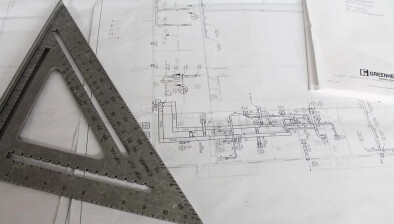Court upholds decree ordering developer to pay council £100,000 for missing affordable housing target

The Sheriff Appeal Court has refused an appeal by a housing developer against a sheriff’s summary decree ordering it to pay £100,000 to a local authority as part of an agreement concerning a local housing development the authority granted it planning permission for.
Guild Homes (Tayside) Ltd, which had agreed to pay a sum determined by the district valuer to Angus Council in the event it was unable to provide affordable housing as part of a development, argued that the sheriff had made an erroneous decision that its defences to the action had no prospect of success, Scottish Legal News reports.
The appeal was heard by Sheriffs Principal Aisha Anwar and Nigel Ross, with Appeal Sheriff Patrick Hughes. Dean of Faculty, Roddy Dunlop KC, appeared for the appellant and E Mackenzie KC for the respondent.
Defences were foreclosed
In 2011 the parties concluded an agreement under which the respondent granted planning permission for a development at Friockheim in Angus and the appellant undertook that 20% of the houses in that development would be affordable housing. If this commitment was to prove unachievable, the appellant was to transfer a commuted sum to the respondent in lieu of these housing units, later agreed to be paid in four instalments calculated using the district valuer’s assessment of the market value of a housing unit as at the time of each payment.
The provision of the affordable housing units was not achieved. Consequently, in June 2017 and March 2018 the pursuer issued invoices for the first two instalments of the commuted sum, for £108,000 and £104,000 respectively. Those invoices were paid subject to a reserved right to argue that the valuer’s calculations were erroneous.
In March 2019 the pursuer sent the defender an invoice for the third instalment sum of £100,000, being the value of four housing units. The defender refused to pay this invoice, arguing that the district valuer’s methodology was unsound and significantly inflated the commuted sum payable. Instead, the defender sought to cap the total sum payable to £216,000, effectively eliminating the need to pay further instalments.
The refusal of that modification was appealed to the Scottish Ministers, which dismissed the appeal. This led to an action before the sheriff seeking payment of the third instalment. The sheriff upheld a submission that the appellant’s case had no real prospect of success and granted summary decree in favour of the respondent.
It was submitted for the appellant that the sheriff was wrong in law to say that the defences were foreclosed in terms of section 237 of the Town and Country Planning (Scotland) Act 1997. The sheriff had prevented it from contesting a decision to fix a price by a third party, and nothing less than the clearest wording should oust the court’s supervisory jurisdiction in this regard.
Resurrect the issues
Appeal Sheriff Hughes, delivering the opinion of the court, observed generally: “In the present case the defender complains that the sheriff’s decision has deprived it of the right to prove by force of exception that the district valuer had manifestly erred or materially departed from his mandate. The defender argues that it is seeking to challenge the district valuer’s decision, not any decision of the Scottish Ministers, so section 237 is not engaged.”
Assessing the relevance of section 237 to the case, he said: “The reporter found that the approach of the district valuer was consistent with the underlying purpose and basis of the payment of the commuted sum. He rejected the arguments that the district valuer had erred in failing to make allowance for the characteristics of the site, or by failing to prefer certain comparison sites in a benchmark analysis. Although valuation data had been submitted, which suggested – on the basis of comparable market data – that a lower commuted sum might be available, the reporter considered this data to be of limited value.”
He continued: “Although the district valuer’s methodology was only one element of the appeal, the reporter nevertheless had to make a determination upon it in order to decide the appeal. His reasoning, in refusing an appeal which would have eliminated the role of the district valuer, necessitated a determination on the criticisms of the district valuer’s methodology.”
Appeal Sheriff Hughes concluded: “That determination having been made, the terms of section 237 mean that it cannot now be questioned. The substance of what the defender seeks to argue in its defence to this action resurrects the same issues determined by the reporter. The defence is therefore incapable of question before the court, and the sheriff was correct to grant summary decree.”
The appeal was therefore refused.










